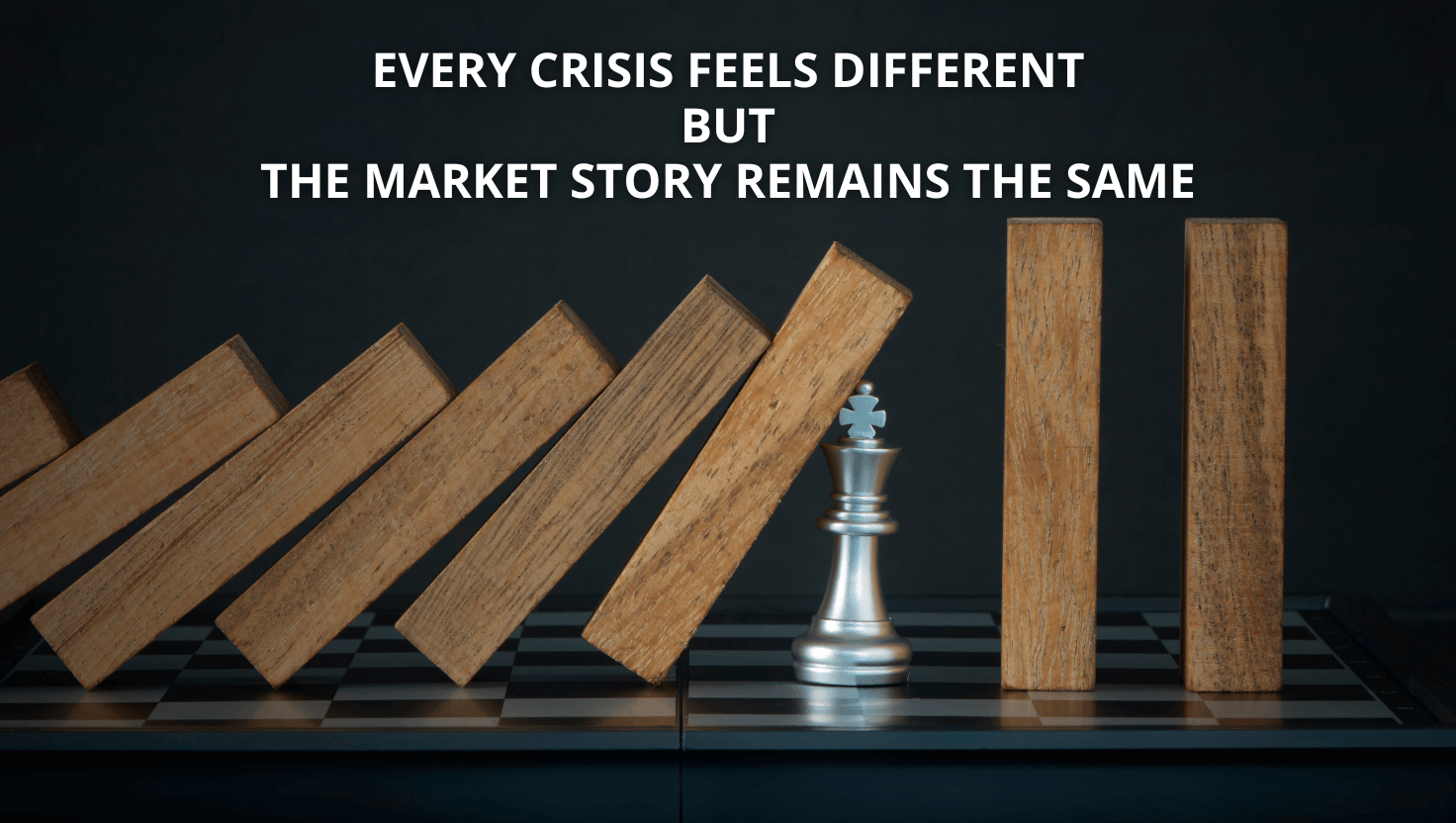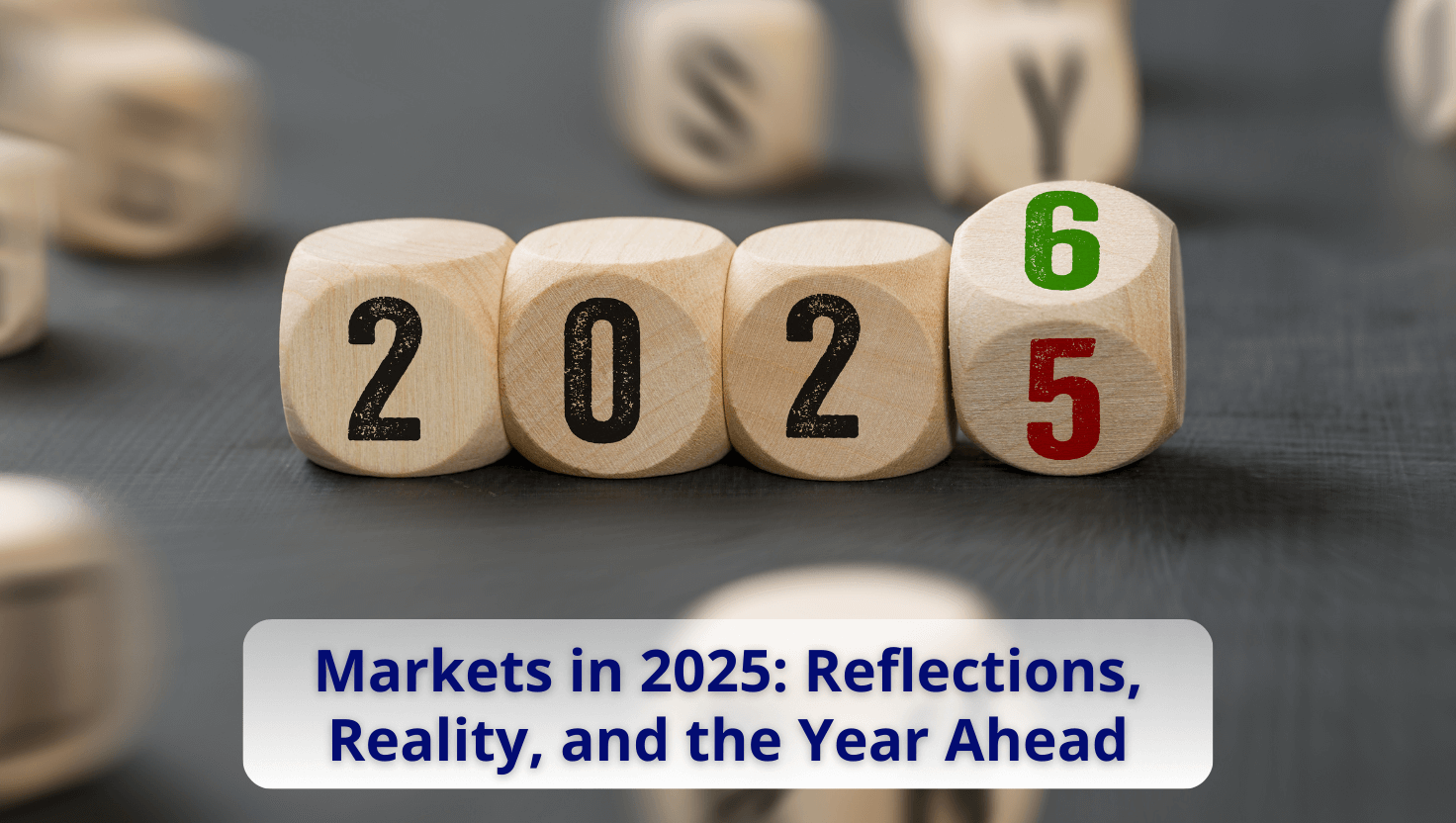I was both shocked and amused when I saw an advertisement featuring a young boy proudly showing off that he had 150 trades scheduled in a day! I was confused because it’s practically impossible for a human to manage that, and amused at the creative ways companies use to promote their trading platforms.
This got me thinking about how emotions often drive investment decisions. The emotions related to FOMO, greed, jealousy, guilt, and fear are the driving forces of such advertisements. The stock market is generally filled with a lot of examples of emotional trading/investing, where people act on impulse rather than strategy, very rarely leading to massive gains but often resulting in heavy losses.
The 2008 financial crisis saw many long-term investors selling their stocks at rock-bottom prices, fearing further losses. However, those who remained patient and held onto their investments saw the market recover and reach new highs over the years.
This reminds me of Warren Buffett’s famous advice, “Be fearful when others are greedy and greedy when others are fearful,” which highlights the importance ofstaying rational rather than reacting emotionally.
As we understand, investing is a process that is based on numbers, logic, analysis, and careful planning. When your investment decisions are based on emotions, they often result in costly mistakes.
You might be surprised to learn that our emotional responses are deeply rooted in the way our brains have evolved. So understanding their impact on your investment decisions is very important.
Think of the brain as having two sections – primitive and evolved. The primitive section is like a caveman’s brain. It is responsible for keeping us safe, alerting us to danger, and triggering instinctive reactions. It is also the part that compels us to sell stocks/investments impulsively when a “danger” story is presented.
The evolved section, on the other hand, processes information logically, understanding the complexities of the modern world.
Unfortunately, when the primitive part of brain becomes very active, it overwhelms the evolved section, shutting down logical thinking. As a result, our decisions are driven by the instinctive fight-or-flight response rather than rational analysis.
Money is deeply personal, tied to our dreams, security, and even identity. It’s natural to feel excited during market highs and anxious during downturns. However, allowing emotions to decide our investments can lead to costly mistakes and sometimes irreparable ones.
For instance, during market booms, the fear of missing out (FOMO) can push us to buy overpriced stocks. On the other hand, during downturns, panic and fear of further losses can trigger selling at the worst possible time. Emotions like greed, fear, overconfidence, and regret can cloud our judgments and derail even the best-laid plans.
Major Emotional Responses
Over the years, I have observed few emotional patterns that many investors tend to exhibit:
- Impulsive Buying & Selling
Emotional investing often leads to reactionary decisions like buying when prices are soaring and selling when they’re correcting. This can result in buying high and selling low, which is exactly the opposite principle of a successful investment strategy.
- Loss Aversion
Studies show that people feel the pain of losses more than the joy of gains. This can make investors too cautious, avoiding even calculated risks which is essential for growth. Investors need to take calculated risks to ensure they create wealth in the long term.
- Overconfidence
Investors sometimes overestimate their ability to predict market movements, leading to risky bets. This often leads to an attempt to time the market or delay the investment decisions waiting for the right time. This impacts the long-term wealth creation journey.
- Herd Mentality
When everyone is investing in a particular stock or asset, it’s tempting to follow suit. However, herd behaviour often results in poor timing and potential losses. It is important to invest in products that suit your goals, time horizon and risk appetite.
How Can We Avoid Making Emotional decisions?
Emotions are inevitable in investing — but they don’t have to dictate our choices. Instead of reacting impulsively, use emotions as a signal to pause and re-evaluate. The next time your portfolio turns red and anxiety kicks in, take a breath and check these essentials:
- Have a Clear Investment Plan
Define your financial goals and stick to a structured investment plan. When you know why you are investing, you are less likely to make impulsive moves. As long as your investments are aligned with your plan, there’s no need for emotion-driven action.
- Leverage Rupee Cost Averaging
Invest a fixed amount regularly, instead of trying to time the market. This approach reduces the impact of short-term market volatility and prevents emotional investing. Also, if you are a long-term investor, taking a SIP route is best for benefiting from rupee cost averaging. If you can’t invest monthly, view market dips as opportunities for long-term wealth creation and invest more, if you have any surplus.
- Diversify Your Portfolio
A well-diversified portfolio spreads risk and reduces the impact of volatility during market swings. Diversification provides balance and helps you stay calm when markets fluctuate.
- Seek Professional Guidance
A qualified financial advisor or mutual fund distributor can offer objective insights and help you stay disciplined — especially when emotions tempt you to deviate from your plan.
Emotions are part of being human, but they don’t have to hurt your investments. By recognizing emotional triggers and following structured strategies, you can make rational, long-term decisions that truly serve your financial goals.

Shreedhara is the Founder & Director of Ara Financial Services Pvt. Ltd. He has an experience of over 2 decades in Financial Service Industry with majority of it in guiding individuals and institutions on their investments requirements.









